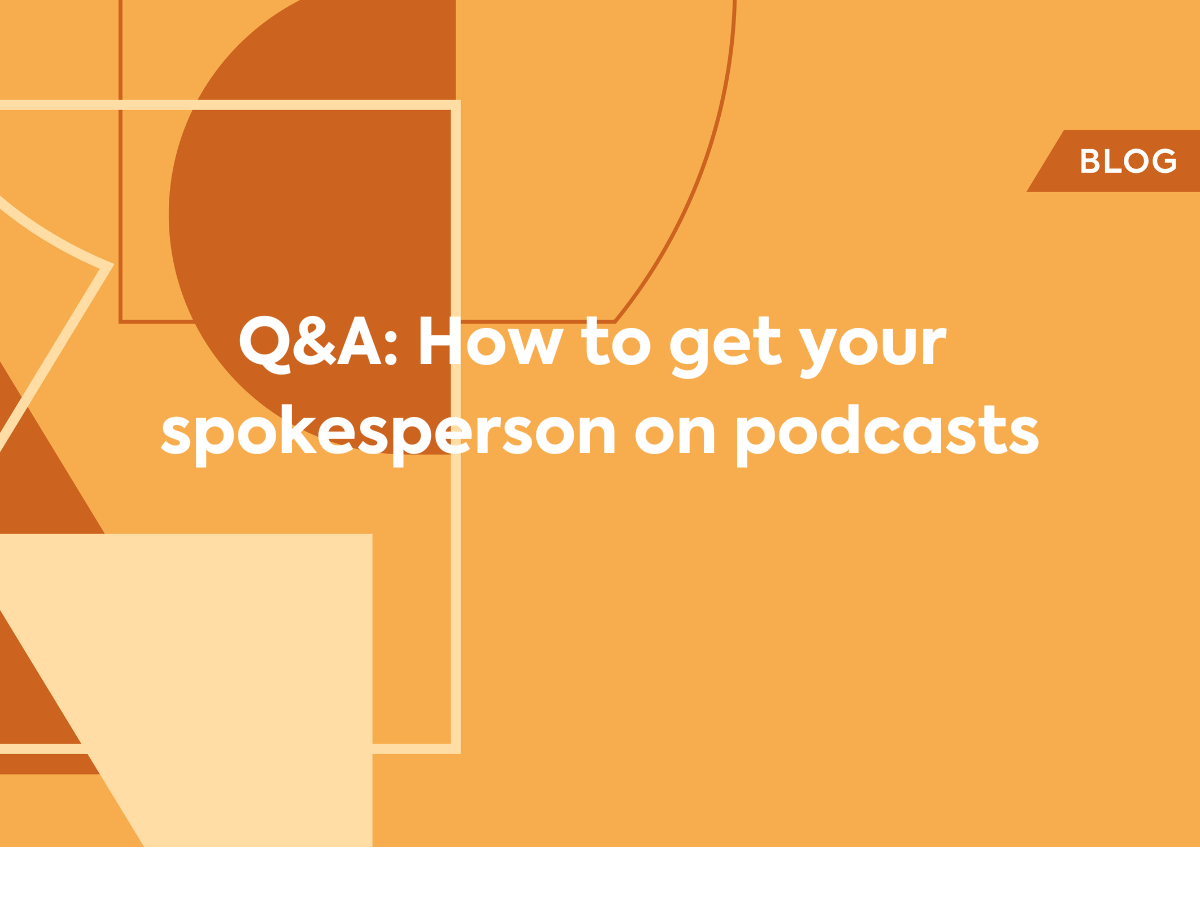
Q&A: How to get your spokesperson on podcasts
Podcasts are a bit of a media darling. Journalists love them. Vendors love them. And even security buyers love them. According to a 2025 Edison Research study, 62% of B2B buyers listen to podcasts.
At Code Red, we’ve seen first-hand the impact of podcasts in attracting new customers. One client recently told us they gained a new customer specifically thanks to being featured on a podcast – an opportunity we had secured for them.
Podcasts are valuable not only for showcasing a client’s expertise on a subject but also for offering the chance to connect with the audience in a way that written content cannot.
So, we spoke to Neil Hughes, host of ‘The Tech Talks Daily Podcast,’ about his journey into podcasting and what you need to think about when pitching to him.
Code Red: How did you get into podcasting?
Neil Hughes: At the time, I was writing primarily for Inc. magazine and a few other business magazines. I had all these readers, and I thought, “Wouldn’t it be great to put a human voice behind these written articles?” Essentially, an audio version of what I’d already been writing, but with deeper analysis.
Inc. later decided they wanted me to move on from the project, but I was still receiving great stories from tech founders and leaders. At that point, I thought, “Why not do it myself?” So, I launched The Tech Talks Daily Podcast.
When I started in 2015, I released one episode per week, but I soon realised I was booked up three months in advance. I thought going daily would solve the problem, but demand just kept growing.
I’ve seen how much value technology vendors gain from being on the podcast. In fact, I’m currently booked with 200 guests in advance, not including all the other great stories I receive daily.
Code Red: Why do you think podcasts are so valuable?
Neil Hughes: Writing is still very much a passion of mine, but in an era of AI-generated content, podcasts resonate much more strongly with audiences. The sound of the human voice is still incredibly powerful.
People consume content differently now. Some prefer to read about the tech landscape, while others would rather listen or watch video. If you’re creating content, it’s vital to reach those different audiences and personality types.
As a journalist, just sitting behind a computer and writing no longer works. When I first started the podcast, writing was still my main source of income. Now, podcasts and other projects I work on have overtaken the writing side of my job.
Code Red: What stories are looking for your podcast?
Neil Hughes: I’m always looking for real-world problems. I want to give my listeners an episode they can take something from and actually learn from the conversation.
I’m not interested in a company’s shiny new product that supposedly solves everything. Instead, I want to hear what customers are saying, the challenges they’re facing, and how we can solve them.
Before I became a journalist, I was an IT guy for 20 years. I used to sit in meetings with stakeholders, and their eyes would glaze over whenever the tech guy spoke. I always saw my role as bridging the gap between IT and the rest of the business – and that’s exactly what I’m trying to do with the podcast.
Funny enough, I’m essentially doing the same job now, only for my audience instead of stakeholders.
Code Red: What are you looking for in a podcast guest?
Neil Hughes: I want guests to demystify the tech. So, if a guest is talking about a technical topic such as agentic AI, I want them to explain clearly what “agentic” means and dig into how it impacts business.
My audience works across a wide range of roles and sectors, so they’re not experts on every new technology or trend. Guests need to break down complex topics and give advice that listeners can actually apply to their own work.
Equally important is talking about ROI and how technology brings value to a business. It’s great if your spokesperson can dive into intricate details, but that’s useless to my audience if they can’t explain the value and how to make it effective in a business environment.
When pitching, think: this is the problem, here’s what everyone is saying, and this is how we fix it.
Code Red: After you’ve published a podcast, how important is social media?
Neil Hughes: It’s absolutely crucial. If we’ve worked together to create a great piece of content, sharing it is essential.
I’ve collaborated with guests after an episode was released to create short clips they can promote on social media. Suddenly, one podcast becomes content that can be shared across platforms for a week, or even a month.
When choosing guests, I’m very conscious of whether they’ll support the podcast by promoting it on LinkedIn. Too many businesses work hard to secure guests and create a podcast, only to do nothing with it afterwards. When that happens, my first thought is, “why are we even bothering?”
On the flip side, when guests actively share on social media, I’m extremely grateful. They help expose me to a new audience, and I’m far more likely to invite them back again.
If you’d like to know more about how we could help you get on podcasts, book a meeting to speak with us here.